Malaysia has marine mammals?
Rio Button
November 17, 2020 · 9 min read
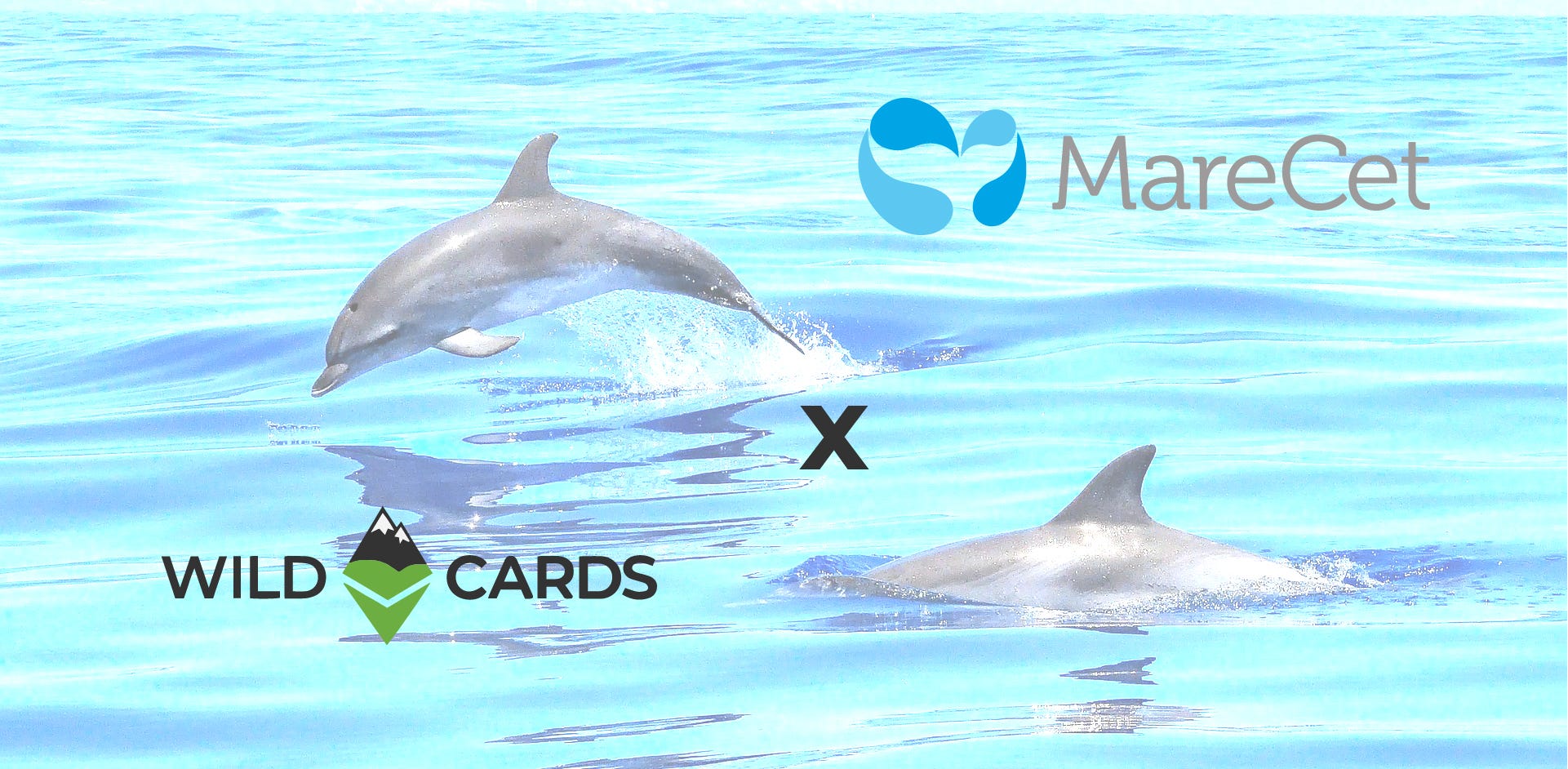
90% of Malaysians don’t know there are dolphins and whales in Malaysian waters
There are at least 6 species of dolphins and 1 species of whale that resides permanently in Malaysian waters. At least another 19 species of marine mammals traverse through Malaysian waters from time to time yearly. Gobsmacked to discover whales and dolphins are found in their waters, Malaysians frequently ask scientists “are you sure that the whales and dolphins aren’t just lost?”
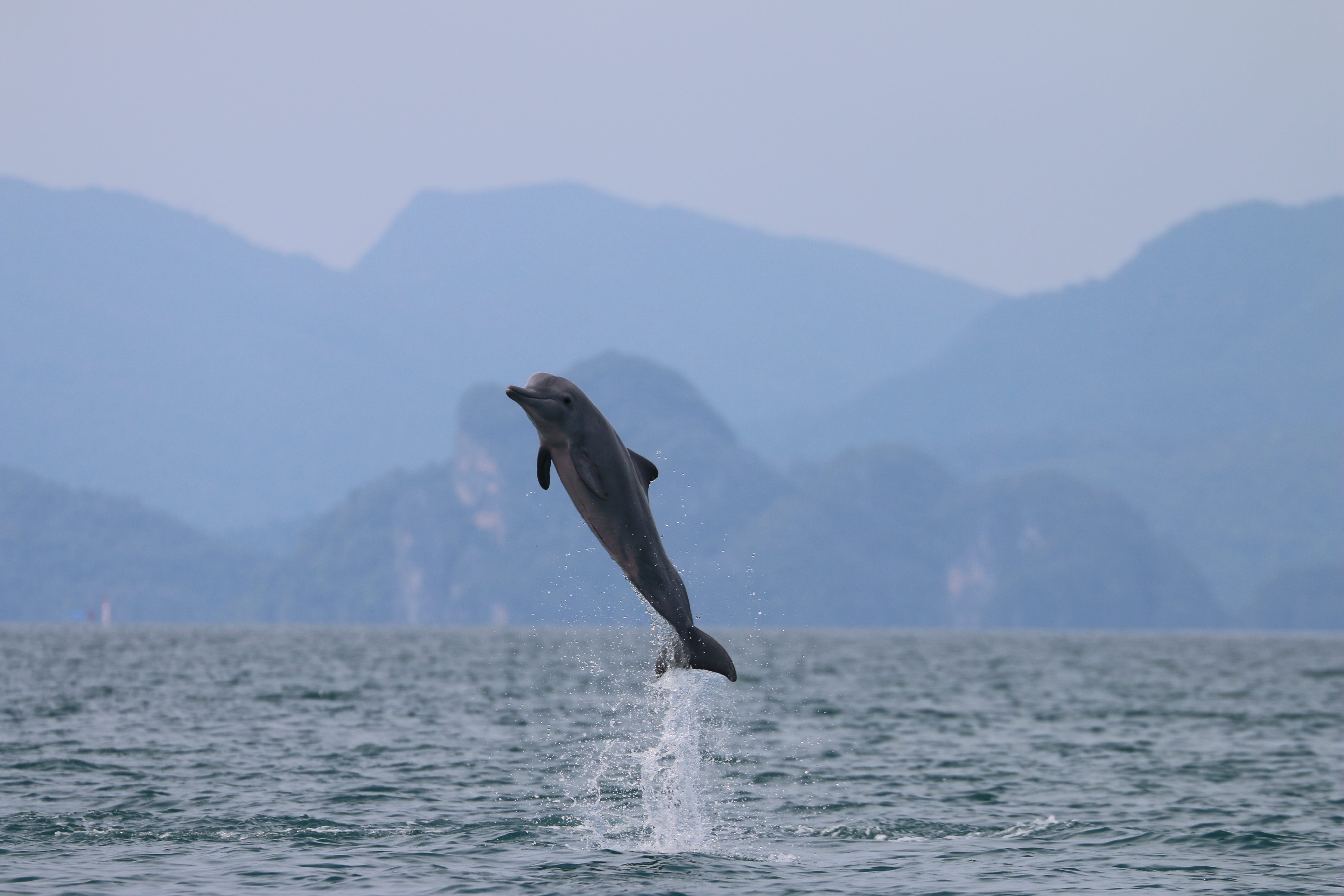
Marine mammals in Malaysia are not lost!
Marine mammals in Malaysian waters most definitely aren’t lost. In fact, Malaysia has five areas classified as Important Marine Mammal Areas (IMMAs) by the International Union for Conservation of Nature (IUCN). The IUCN is the global authority on the conservation of endangered species.
These IMMAs have been declared, as such because of their importance for the conservation of whales, dolphins, porpoises, and dugongs. This status implies that these areas are prioritised for the implementation of conservation measures. If it were not for the NGO MareCet, these areas which are so important for marine mammals, especially the ones in Peninsular Malaysia, would not have been detected. These would have gone under the radar and not been highlighted for protection.
Introducing MareCet
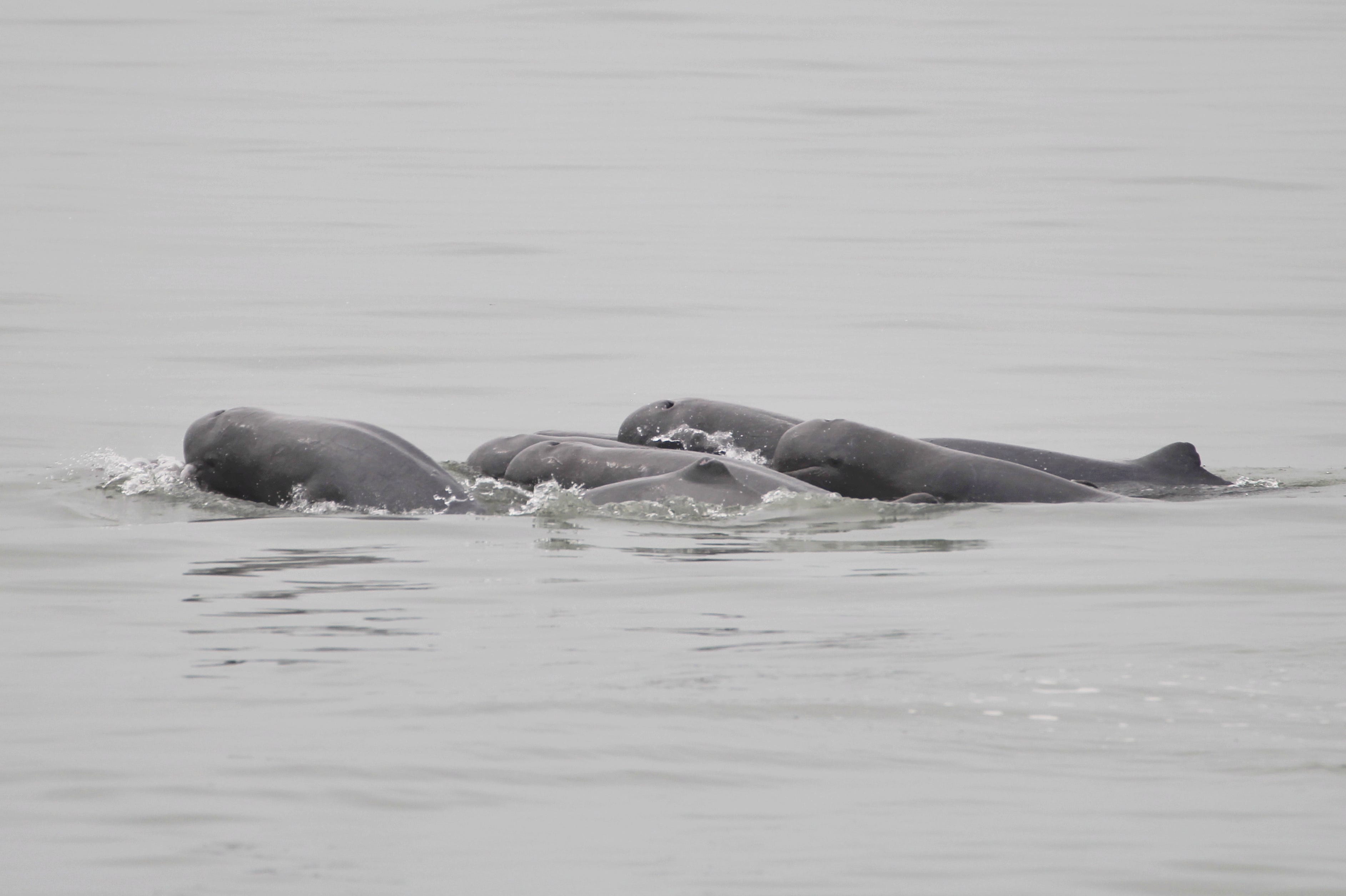
The name MareCet (pronounced ma-rei-set) is derived from the combination of the words Mare and Cetacean. The word ‘Mare’ in Latin means ocean, while ‘Cetacean’ is the scientific grouping of whales, dolphins and porpoises. By combining the two words into MareCet, the name signifies the two main focus of the organization: (1) The ocean, in general and (2) marine mammals, in particular.
MareCet is Malaysia’s first and only NGO dedicated to the conservation and research of marine mammals. The organisation feels it is critical for younger generations to understand the importance of marine mammals. A typical working day for MareCet employees can include anything from conducting boat-based and aerial surveys for marine mammals, to engaging with local communities and governments to advocate for new policies and policy changes, to presenting events at schools or to the public to raise awareness about marine mammals in Malaysia.

Meeting the founders
I chatted with MareCet co-founders Dr. Louisa Ponnampalam and Fairul Izmal Jamal Hisne. Ponnampalam explained that she and her co-founder “met when applying for the same job and that he [Fairul] got the job.” Their competitiveness fizzled out as soon as they discovered their intense mutual passion for marine mammal science. Both had spent a decade abroad studying marine science after high school and having both grown up with childhood dreams of studying and conserving whales and dolphins.
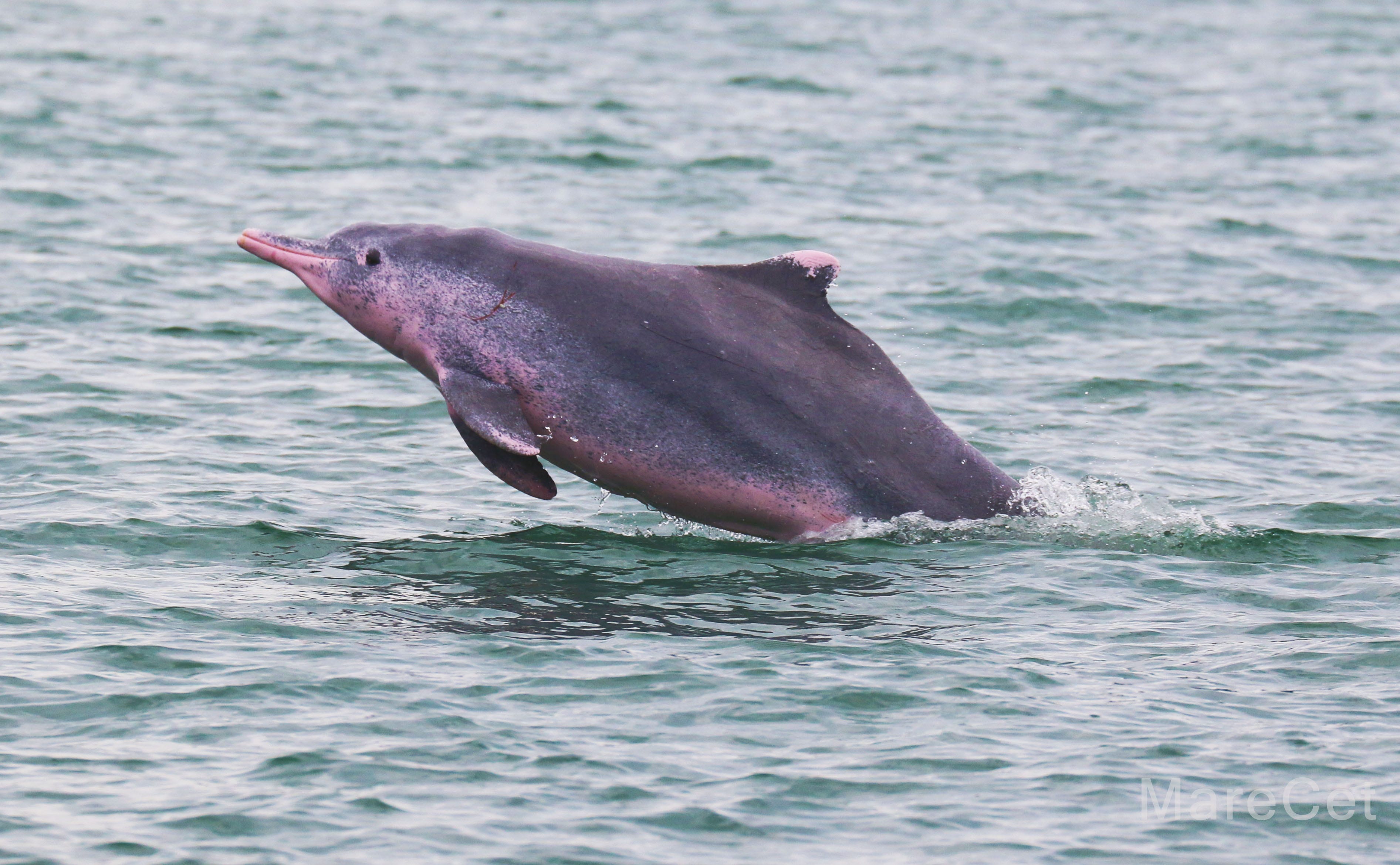
The first time
“Dad, I saw something! Can you stop?” 10-year-old Fairul had spotted the tell-tale blow of a whale for the first time. Fairul told me “there were binoculars, you know the ones that you put coins in? … I put a quarter in and that was when I saw my first whale.”

Fairul was mesmerised by the “majestic animal” he saw breaking the surface to breathe. This sighting happened in America, where Fairul and his family had recently relocated to from Malaysia, as his father was serving on secondment to the United Nations. After seeing this first whale, Fairul became fixated on knowing more about them. He started reading up on marine mammals, discovering that the first whale he had seen was a grey whale, which was undertaking one of the longest migrations of any mammal on earth. It was migrating south from its summer feeding grounds in the Arctic to Mexico where grey whales mate and give birth in the winter. While living in America he also saw manatees, dolphins, and the only species of white whales, belugas, while on a trip in Canada. The more marine mammals he encountered the more intrigued he became and his interest has only intensified and grown stronger. He and Louisa went from job competitors to project collaborators to co-founders, because of their shared ambition to ignite and expand the frontier of marine mammal science in Malaysia. Together they dreamed up MareCet.
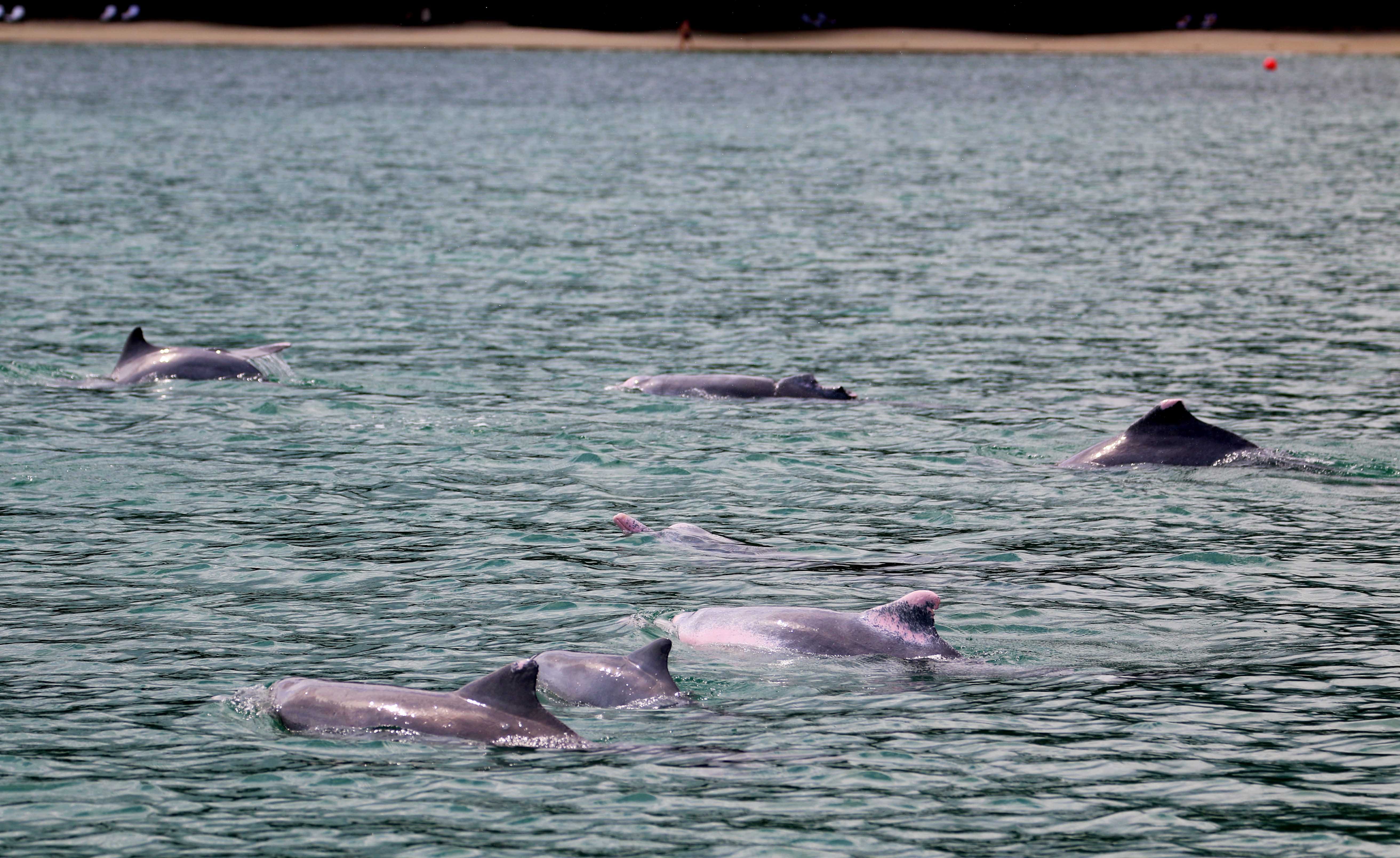
But why reinvent the wheel?
Louisa tells me the concept of founding MareCet was met with laughter and skepticism by friends, family, and colleagues alike. The pair were told they “You’re nuts!,” “Why reinvent the wheel?”, and “Where will you find funds?” It was suggested to them to rather “Team up with a large existing NGO,” but both she and Fairul had explored how other organisations worked. They believed establishing an organisation themselves would enable them to effectively do research and conservation, and raise the profiles of marine mammals in Malaysia.
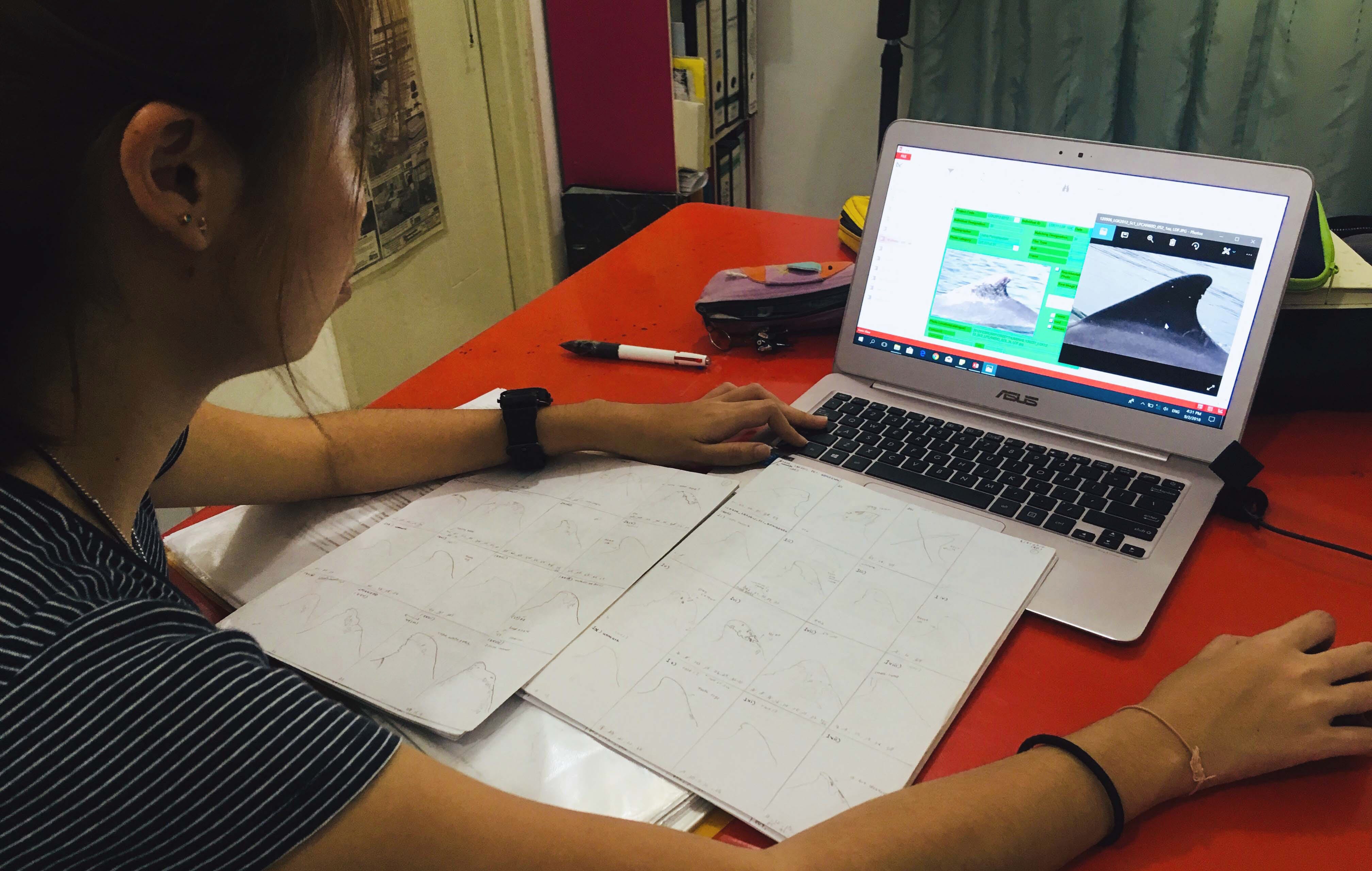
“Where will you find the funds?”
To kick start their bank account they collected “old junk” including clothes, toys, books, and electrical items from friends and relatives for six months and then held a garage sale over three days. With a smile, Lousia recalls that in the six months leading up to that garage sale, her mother had an urge to “throw her out of the house” because of all the old junk that was accumulating in the house. The earnings of the garage sale were used to open MareCet’s bank account and fuel the beginning of their “pipe dream.” Fairul tells me that “as an organisation we are small, but we dream big… sometimes too big”.
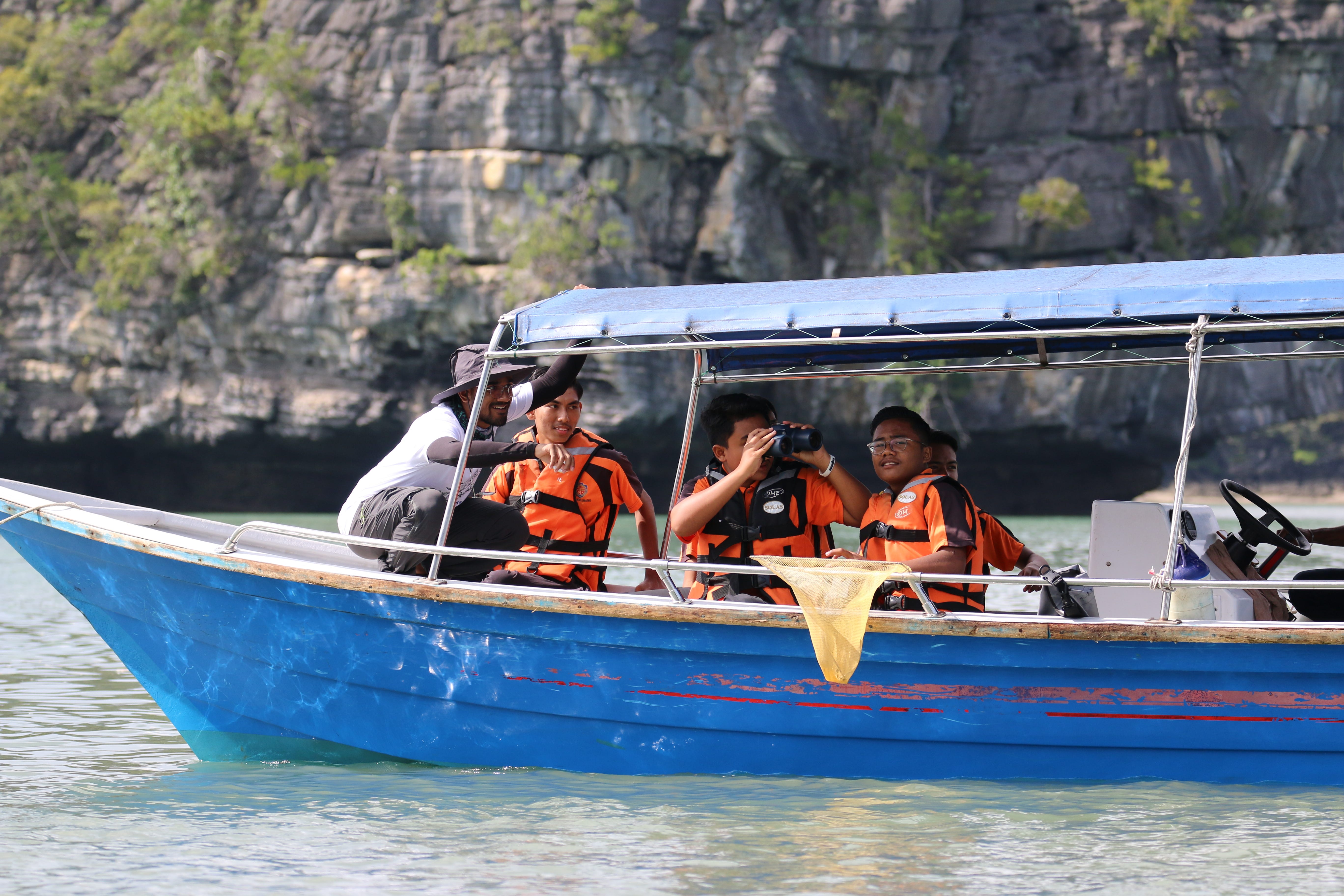
Big dreams achieved
Louisa tells me MareCet has already achieved more than she could ever have dreamed was possible. MareCet has inspired young kids to take on ocean guardianship roles, encouraged and trained up several Malaysians to do their PhDs on marine mammals in Malaysia and abroad. Three of their field sites have been internationally recognised as IMMAs, and have had numerous scientific articles published about marine mammals in Malaysia. In just 8 years, MareCet has gone from the co-founders working for MareCet part-time, and operating out of a friend’s storage garage to having an office with 3 full-time staff making up the MareCet team.
A team of tough cookies
MareCet staff are dedicated and described as “tough cookies”. In 2014, while conducting a dolphin survey, disaster struck when the MareCet research vessel capsized. The MareCet team spent a grueling 12 hours swimming to shore and trekking through a mangrove forest in the dark whilst being bitten by mosquitoes and sand flies, unaware of what other creatures were lurking around them in the darkness. The team was finally rescued by fishermen and managed to salvage some research equipment. Unfortunately, much of it was lost to the sea. “This experience was a huge shock to our staff as individuals,” Louisa tells me. However, everyone there on that fateful day, when the boat capsized, are still with MareCet. She is impressed that after the unfortunate incident, “no one said this job is too dangerous… [All are] still loving the work that they do and remain passionate about marine mammal conservation.” She tells me “I’m really proud of this team that we have built. They are really committed to the cause and they are tough cookies!”
Connecting “urbanites” to nature
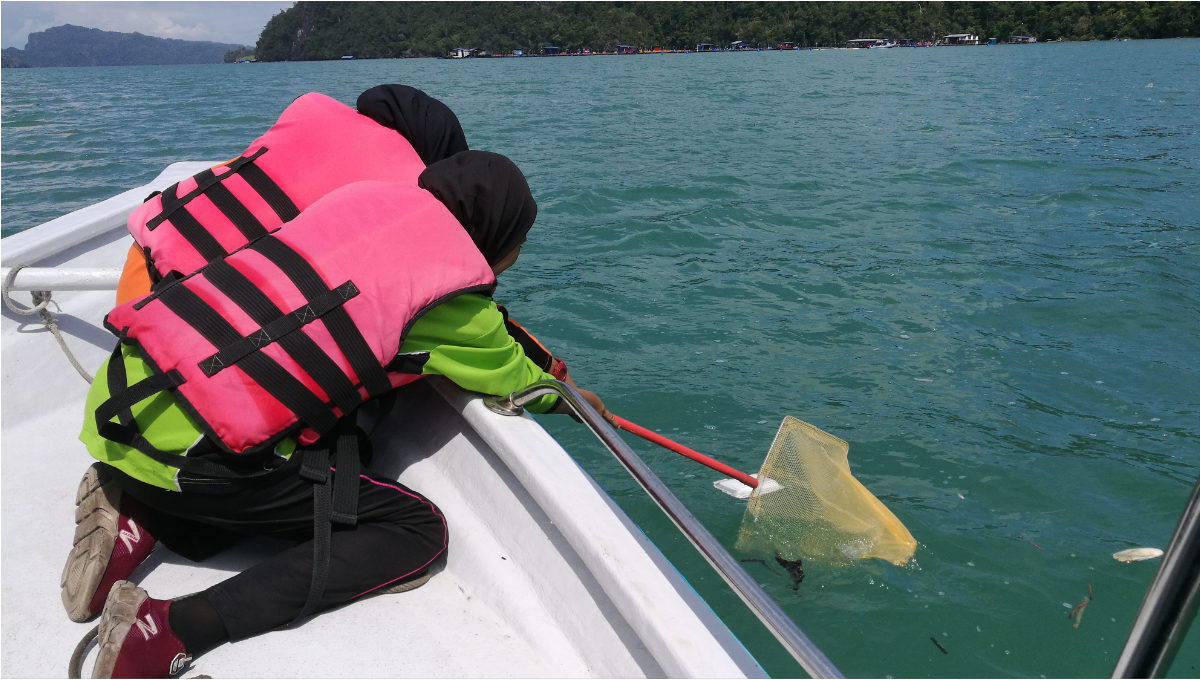
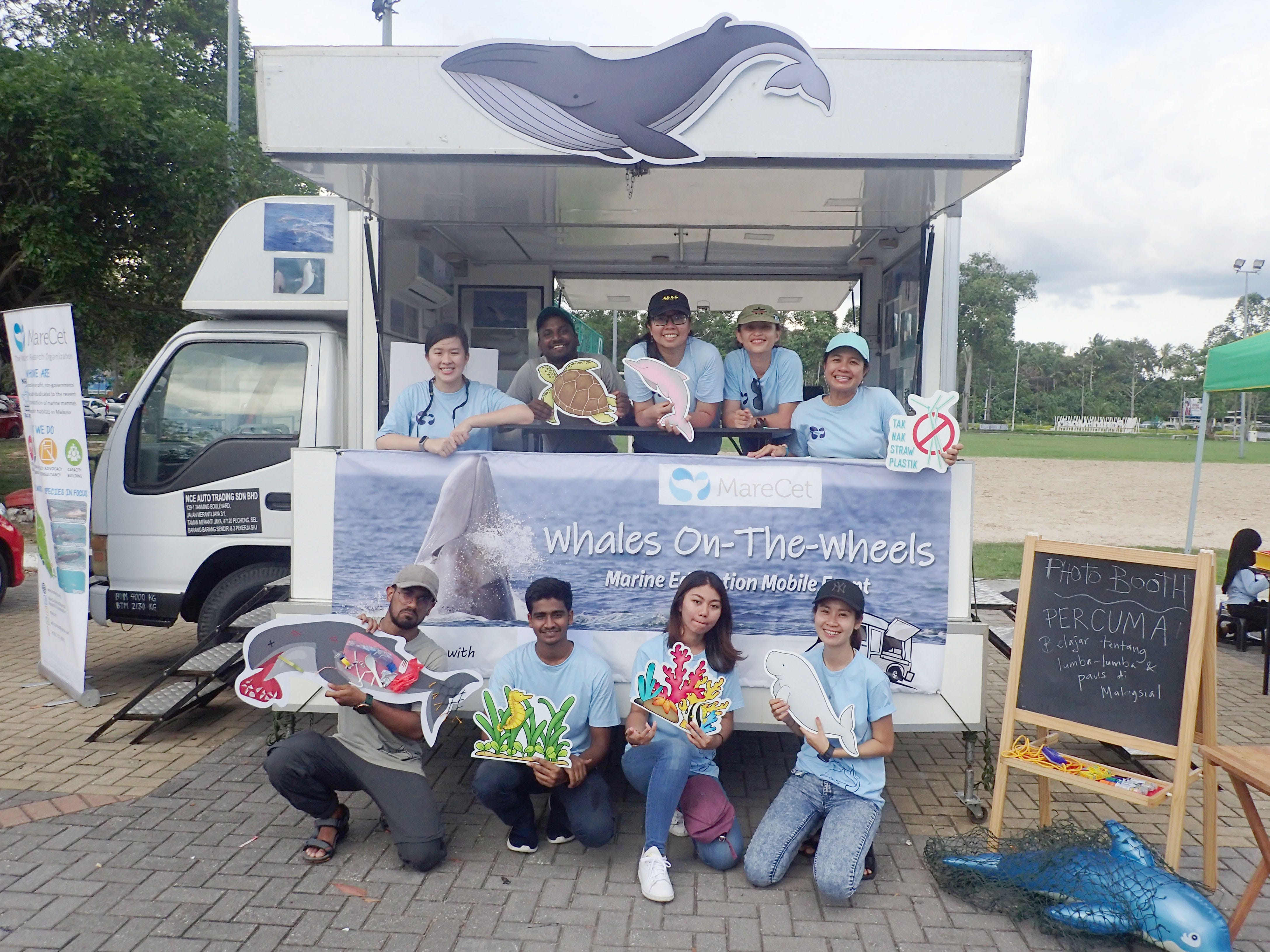
MareCet shares knowledge with Malaysians regarding local charismatic marine mammals including whales, dolphins, porpoises, and dugongs in order to facilitate their understanding and connection with their place in natural systems, as well as the impact they have on these systems. Louisa believes it is critical to evoke an awareness within the urban-dwelling people or “urbanites,” as she calls them. By recognizing their place in the natural system and the impact their day-to-day living has on the environment will make people cognisant of the ripple effects of single-use plastics, littering and pollution on marine creatures and the broader natural environment.
Whilst taking Malaysians on boat trips to see marine mammals, MareCet fish out plastic from the sea and emphasise its dire impact on marine life. Mobile marine mammal workshops are hosted from their “Whales on-the-Wheels” truck, to extend the awareness about marine mammals to more people. As they don’t have the capacity to take everyone to sea to encounter marine mammals and pollution firsthand.

MareCet proud partner of Wildcards!
Louisa says she is “so grateful” to Wildcards for the exposure the platform offers MareCet.
New Wildcards will be launched to raise funds for the MareCet. Each card has a captivating, fact-filled story about an individual animal, which MareCet researches and helps protect. You’ll be able to publicly buy one of these wildcards online, which will make you the guardian of that Wildcard animal. When you buy a wildcard, you must set the price you are willing to sell it for. Every month, as the guardian of a Wildcard, you will give a specified portion of the selling price you set, to that animal’s representative conservation agency, which in this case, is MareCet. At any point, someone can buy the Wildcard from you, at the selling price you specified. When someone buys the Wildcard from you, they must set a new selling price. The new guardian of the Wildcard is then responsible for giving the new monthly subscription. And so, the cycle continues, to generate funds.
Wildcards is ecstatic about connecting funders with conservation agencies having a real world impact on the protection of wild animals at risk.
MareCet is truly a phenomenal organisation doing incredible work. To find out more about them, go to their website and follow them on Instagram, Facebook and Twitter.
Also read:
Wildcards: an unprecedented means of funding conservation
Follow Wildcards on twitter: @wildcards_world
Follow Wildcards on Facebook: @wildcards.conservation
Follow Wildcards on Instagram: @wildcards_world
Join us on: Discord
Written by Rio Button — Chief Conservation Officer at Wildcards.
Dr Seahorse’s journey
From unravelling seahorses’ secret sounds to safeguarding the habitat of these little super dads. St...
Rio Button
June 29, 2022 · 5 min read
What wild animal leaves teddy bear footprints behind?
Photo by Helena Atkinson. Photo by Helena Atkinson. Here are some clues… Using their sticky tongues,...
Rio Button
February 07, 2022 · 9 min read
Tech innovation: Solving wildlife conservation's greatest challenge
Tech start-up Wildcards has raised over 130,000 USD for conservation organisations around the world ...
Rio Button
August 24, 2021 · 7 min read
Curious creatures under persecution
From having a deep fear of sharks to defending them. Reluctant, Grant Smith tumbled backwards off t...
Rio Button
July 26, 2021 · 8 min read
NFT Postcards for a purpose
NFT Postcards for a purpose A limited edition set of NFTs has been created in partnership with the T...
Jason Smythe
April 01, 2021 · 2 min read
Do you Care for Wild?
As rhino poaching soars, what happens to the orphaned rhino calves left behind? An orphaned baby bla...
Rio Button
February 24, 2021 · 7 min read
Where the wild things roam
South Africa’s most Endangered carnivore can’t be kept in by fences. Wildcards chatted to the man re...
Rio Button
February 23, 2021 · 10 min read
Rumours of an elusive feline in the mangrove forest
While collecting data in San Pedro de Vice Mangroves, in the Sechura desert, final year biology stud...
Rio Button
December 23, 2020 · 8 min read
South Africa’s last remaining white shark stronghold under threat
The Oceans Research Institute battles the impact of demersal longline fishing to safeguard great whi...
Rio Button
November 25, 2020 · 8 min read
Malaysia has marine mammals?
90% of Malaysians don’t know there are dolphins and whales in Malaysian waters There are at least 6 ...
Rio Button
November 17, 2020 · 9 min read
